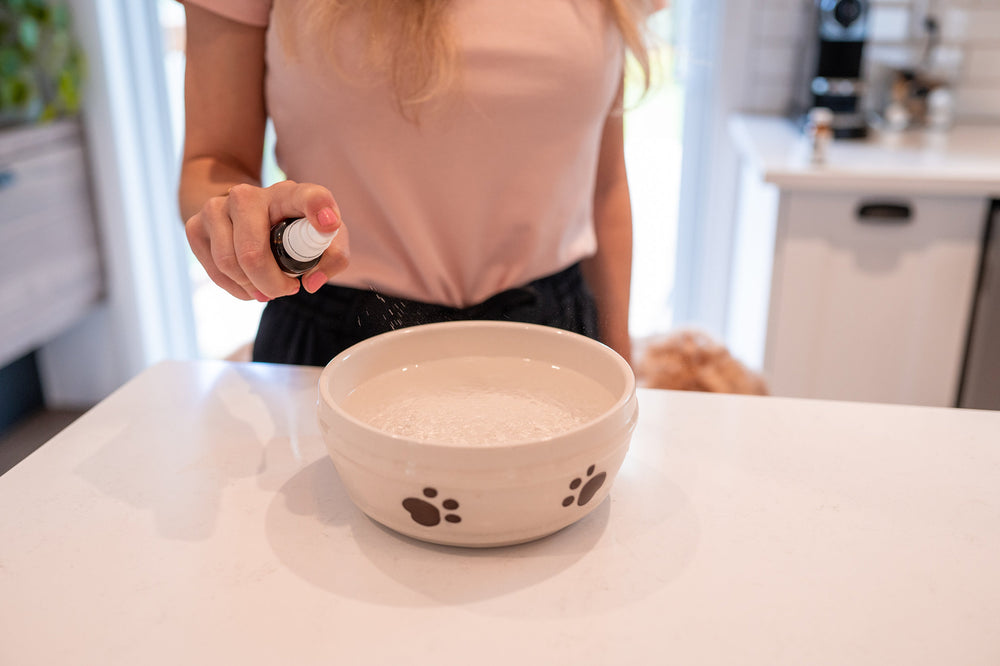Expert Insights: 8 Must-Have Qualities of an Effective Guard Dog
List of Contents
The image of a guard dog as merely aggressive and loud is a common misconception. In reality, the best guard dogs are calm, intelligent, and deeply loyal. Their strength lies not just in their bark but in their balanced temperament and keen instincts.
A guard dog is a specially bred and trained canine tasked with protecting people, property, or both. This role has been developed and refined over centuries, combining instinct with discipline. Today’s top guard dogs are the result of generations of selective breeding for strength, loyalty, and vigilance.
Modern guard dogs combine instinctive protective traits with specialized training, making them highly reliable defenders. They’re more than companions. They’re loyal, disciplined partners in security.
What sets an elite guard dog apart from the average is a distinct set of qualities that go beyond basic obedience or aggression. This article examines eight key traits that distinguish truly exceptional protection dogs.
What Makes an Elite Guard Dog? 8 Defining Traits

Not all guard dogs are created equal. Only a few possess the qualities that make them truly elite. In this article, we’ll explore eight defining traits that set top-tier protection dogs apart from the rest.
#1. A stable and balanced temperament
An elite guard dog possesses a calm, confident, and balanced temperament, never exhibiting excessive aggression or fearfulness. This emotional stability allows them to assess situations carefully and respond only when truly necessary.
A stable temperament ensures a guard dog can be gentle with family and children while remaining alert and ready to act when danger appears. Without this balance, a dog can become unpredictable, a potential liability rather than a trusted protector.
The ideal guard dog strikes the perfect balance between gentle companionship and serious protection. They’re calm and affectionate when it counts and fully capable when it matters most.
#2. High intelligence and trainability
Intelligent guard dogs don’t just follow commands. They think critically, adapt to changing situations, and make sound decisions under pressure. High trainability ensures they perform reliably, making it a cornerstone of effective protection work.
Brains are just as important as brawn in a top-tier guard dog. Strength alone isn't enough. True protection requires quick thinking, sound judgment, and reliable obedience. The best protectors combine mental sharpness with physical capability to respond effectively in any situation.
#3. Unwavering loyalty and a strong bond
A top-tier guard dog forms an unshakable bond with their family or handler, rooted in trust and loyalty. This deep connection drives their instinct to protect, making loyalty a defining trait of elite guardian breeds.
A strong bond builds the trust and communication essential for reliable performance in high-stress situations. This connection ensures the dog is not only motivated to protect but also responsive when it matters most.
A great guard dog is more than a security asset. They’re a loyal companion and a trusted member of the family. Their protective instincts are rooted in genuine connection, not just training.
#4. Controlled and innate protective instincts
Elite guard dogs possess an innate protective instinct that goes far beyond basic aggression. They respond with precision, knowing when to defend and when to stay calm, making them highly effective and trustworthy guardians.
Uncontrolled aggression signals poor training and can lead to dangerous unpredictability. A well-trained guard dog shows restraint, responding only to real threats with calm, calculated precision.
True protection comes from an instinct that’s carefully shaped through consistent, expert training. When properly guided, this instinct becomes a powerful and reliable force for safety.
#5. Superior physical strength, stamina, and health
An elite guard dog must possess exceptional strength, stamina, and overall health to effectively confront real-world threats. With a muscular build, sharp endurance, and explosive power, these dogs are physically equipped to protect with speed and precision.
A protection dog must be in peak physical condition to carry out demanding tasks like sprinting, pursuing, and subduing potential threats. Without strength and stamina, even the best-trained dog can't perform when it counts.
A guard dog’s effectiveness depends on consistent physical conditioning through proper nutrition and exercise. Maintaining peak fitness ensures they’re always ready to respond with strength and endurance.
#6. Courage and fearlessness
A top-tier guard dog must possess true courage. The ability to confront threats head-on, even in high-risk situations. This fearless nature is what enables them to stand their ground when protection matters most.
Courage is a non-negotiable trait in any effective guard dog. Without it, even the strongest or best-trained dog may hesitate when it matters most. A fearless dog stands its ground, providing a visible and powerful deterrent to real threats.
When fearlessness is paired with intelligence and proper training, a guard dog becomes a powerful yet controlled protector. This balance is what makes them both effective and dependable in high-pressure situations.
#7. Heightened awareness and advanced senses
Elite guard dogs possess heightened senses of hearing, smell, and sight, enabling them to detect potential threats long before humans can. Their constant awareness of their surroundings makes them exceptional early warning systems and vigilant protectors.
With their heightened senses, guard dogs function like living security systems, constantly scanning for danger. Their ability to detect and alert to threats early makes them both a trusted protector and a strong visual deterrent.
With exceptionally sharp senses, guard dogs serve as the ideal first line of defense for any home or estate. Their ability to detect subtle threats early gives them a critical edge in security. This constant vigilance helps prevent danger before it ever reaches the doorstep.
#8. Responsiveness and obedience
An elite guard dog must respond instantly and reliably to its handler’s commands, even in high-pressure situations. This level of obedience goes far beyond basic training, enabling them to follow complex instructions when it matters most.
Strong responsiveness and obedience keep a guard dog under complete control, even in high-stress situations. This discipline ensures they act as reliable protectors, not unpredictable risks.
Exceptional obedience stems from intensive, specialized training and a deep bond with the handler. This connection builds trust and ensures the dog responds with precision when it matters most.
Popular Guard Dog Breeds With Elite Traits

Some dog breeds are naturally equipped with the traits needed to excel in protection roles. This section highlights popular guard dog breeds known for their strength, intelligence, loyalty, and unmatched guarding instincts.
German Shepherd
The German Shepherd is one of the most respected guard dog breeds worldwide. Known for its loyalty, intelligence, and exceptional trainability, it excels in both family and professional protection roles. Its versatility makes it a top choice for military, police, and home security alike.
Rottweiler
The Rottweiler is a powerful and confident guard dog with a calm, steady temperament. When properly trained and socialized, it becomes a loyal and loving family companion as well as an effective protector. Its strength, intelligence, and natural guarding instincts make it a trusted choice for home security.
Doberman Pinscher
The Doberman Pinscher is a smart, loyal, and agile breed with a strong instinct to protect. Naturally alert and cautious around strangers, it provides dependable security without unnecessary aggression.
Belgian Malinois
The Belgian Malinois is an intelligent, agile, and highly adaptable breed with a strong drive to work and protect. Commonly chosen for police and military roles, it thrives in high-pressure environments that demand focus and precision.
Bullmastiff
The Bullmastiff is a powerful yet calm guard dog known for its imposing presence and quiet confidence. Despite its size, it forms a strong protective bond with its family and is typically gentle and affectionate at home.
Why a Strong Immune System Is Essential for Guard Dogs
A strong immune system is critical to keeping guard dogs healthy, alert, and ready to perform their protective duties. Robust immunity helps prevent illness, supports recovery, and ensures long-term physical resilience.
Zumalka’s IMMUNOPET is a natural immunostimulant formulated with broad-spectrum ingredients that support immune health and help purify the blood and lymphatic system. IMMUNOPET helps promote healthy hemoglobin levels and boosts white blood cell production to strengthen the body’s defense against bacterial and viral infections.
Choosing Your Guard Dog: Key Considerations

Selecting the right guard dog involves more than just picking a popular breed. It requires careful consideration of your lifestyle, environment, and security needs. This section outlines the key factors to help you choose a reliable and well-suited protection companion.
- Training and socialization are non-negotiable. Even naturally protective breeds require proper training and early socialization to become reliable and safe guard dogs. While genetics provides the foundation, consistent guidance and exposure are essential for developing balanced, trustworthy behavior.
- A good match between your lifestyle and your dog's temperament is key to a successful partnership. Your ideal guard dog should match your lifestyle, family structure, and living space. Consider factors like home size, daily routine, and whether you have children, because not every breed is the right fit for every household.
- Partnering with reputable breeders and professional trainers is essential when choosing a guard dog. Experts who prioritize health, temperament, and proper placement can help ensure the dog is a safe, reliable match for your family and lifestyle.
Key Takeaways
A truly elite guard dog is far more than just a tough exterior. It’s the result of balanced temperament, sharp intelligence, physical strength, and dedicated training. The eight core traits we’ve explored work together to create a reliable, responsive, and loyal protector. When chosen and raised thoughtfully, a guard dog becomes not just security, but a trusted partner in protection.
The ideal protection dog is more than a security asset. It’s a devoted companion and a trusted member of the family. With the right training and bond, they offer not just protection, but unwavering loyalty and lifelong partnership.
FAQs
Do guard dogs have to be aggressive?
No. A well-trained guard dog should not be overly aggressive. They should be controlled, confident, and able to engage only when necessary.
Can a guard dog be a good family pet?
Yes. With proper training, socialization, and a stable temperament, many guard dog breeds are known for being affectionate and gentle family pets.
What is the difference between a guard dog and a watchdog?
A watchdog's primary role is to alert by barking, while a guard dog has the training and instinct to engage and neutralize a threat if necessary. Some breeds, such as the Great Dane, are better watchdogs than guard dogs due to their gentle nature.
Which guard dog breeds are best for first-time owners?
Breeds often recommended for first-time owners who want a protective dog include German Shepherds, Bullmastiffs, and Rottweilers, as they are highly trainable and loyal. However, any guard dog requires a serious commitment to training.
What are the qualities of a guard dog?
A great guard dog is loyal, intelligent, obedient, courageous, physically strong, highly alert, well-trained, and emotionally stable, combining instinct and discipline to protect people, property, and family effectively.
What kind of dog is the best guard dog?
The best guard dogs are intelligent, loyal, trainable, and naturally protective. Breeds like the German Shepherd, Rottweiler, Doberman, and Belgian Malinois excel in home security, family protection, and professional roles.
What is the 7 7 7 rule for dogs?
The 7-7-7 rule for dogs refers to key transition milestones: 7 seconds to notice surroundings, 7 days to settle in, and 7 weeks to feel fully at home and bonded.
How do I know if my dog is a good guard dog?
A good guard dog shows loyalty, alertness, confidence, and calm under pressure. They respond well to training, are protective without being aggressive, and remain attentive to unfamiliar people, sounds, or changes in their environment.









Hi Elizabeth! You are very welcome. Your new puppy sounds like a great addition to the family!
Thank you for such an informative article. It will help me train my staffiordshire puppy. He just showed up at our farm in southern Chile four months ago He is very intelligent, agile and lovable
Leave a comment